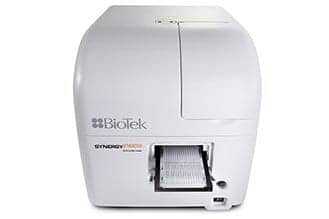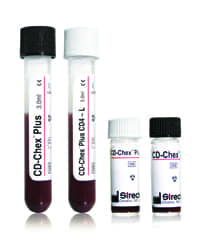Encouraged by promising study results previously reported, Immunovia, Lund, Sweden, has announced that its primary focus in autoimmunity testing will be to develop blood-based biomarker tests for the management of rheumatoid arthritis.
Rheumatoid arthritis (RA) is a devastating chronic autoimmune disease that affects nearly 7 million people yearly in Europe and the United States, and creates an annual economic burden in the United States alone of $19 billion to $23 billion, based on direct costs such as hospitalization, treatment, and loss of productivity.
Furthermore, rheumatoid arthritis symptoms can progress rapidly and with little advance warning, leading to permanent and debilitating joint damage. It is crucial that physicians stay ahead of the disease, since existing treatments can halt or slow progression of the disease.
However, accurate diagnosis remains a major issue, as there are no tests that can detect all RA cases. One of the biggest clinical problems is that more than 25% of patients with established RA test negatively for the standard anti-CCP and anti-RF tests, thus making them very difficult to diagnose with current methods. More important, in the early stages of RA, 80% of patients test negative using the two current standard tests, reinforcing the need for more-accurate early diagnostic tools. Overall, the shortcomings of current anti-CCP and anti-RF tests lead to the performance of an estimated 3 million to 4 million tests in Europe and the United States each year.
To address this situation, Immunovia has completed three discovery studies to assess the potential of the company’s IMMray technology in autoimmunity testing. The first two studies reported excellent accuracy levels using IMMray-based signatures for the differential diagnosis of overlapping autoimmune rheumatic diseases such as RA, Sjögren’s syndrome, systemic lupus erythematosus (SLE), and systemic vasculitis. Key opinion leaders in autoimmune rheumatic diseases expressed interest in the differential data, but highlighted the need for diagnosis of early RA. In the RA field, healthcare recommendations for early diagnosis are already in place, and are being implemented in healthcare systems.1
The third, recently reported discovery study showed a major breakthrough: an accuracy higher than 90% for IMMray biomarker signatures when diagnosing CCP-negative rheumatoid arthritis patients compared to healthy controls. Such exceptionally good results have triggered Immunovia’s strategic decision to focus on RA.
For the next step toward developing a commercial product, Immunovia has engaged several key opinion leaders in the field to design and run a study aiming to optimize the signature for differentiating patients with early RA from controls having diseases other than RA but exhibiting RA-like symptoms.
For SLE, key opinion leaders emphasized that the major clinical unmet need is monitoring SLE flares and treatment. Preliminary studies published in 2016 showed that the IMMray platform could measure high and low SLE activity, but further large discovery studies with many samples per patient would be required to confirm these findings.2
Immunovia´s core technology platform, IMMray, is based on antibody biomarker microarray analysis. The company is now performing clinical validation studies for the commercialization of IMMray PanCan-d, which could become the first blood-based test for the early diagnosis of pancreatic cancer.
“As Immunovia has already shown in cancer applications, IMMray blood biomarker signatures offer exciting new opportunities to develop accurate diagnostic tests that could detect the disease in early stages,” says Mats Grahn, CEO of Immunovia.3 “Our discovery studies have demonstrated the significant power of Immunovia’s IMMray technology in autoimmune rheumatic diseases.
“The overall strategy for Immunovia in autoimmunity testing that we have now adopted is to solve major clinical unmet needs with the main focus on diagnosis of early RA,” adds Grahn. “Our goal is to provide clinicians with cost-effective multiple testing along the whole patient pathway, from initial diagnosis through treatment selection, monitoring, and outcome measurement.”
For additional information, visit Immunovia.
References
- van Steenbergen HW, Aletaha D, Beaart-van de Voorde LJJ, et al. EULAR definition of arthralgia suspicious for progression to rheumatoid arthritis. Ann Rheum Dis. 2017;76(3):491–496; doi: 10.1136/annrheumdis-2016-209846.
- Delfani P, Sturfelt G, Gullstrand B, et al. Deciphering systemic lupus erythematosus-associated serum biomarkers reflecting apoptosis and disease activity. Lupus. 2017;26(4):373–387; doi: 10.1177/0961203316669240.
- Mellby LD, Nyberg AP, Johansen JS, et al. Serum biomarker signature-based liquid biopsy for diagnosis of early-stage pancreatic cancer. J Clin Oncol. 2018;36(28):2887–2894; doi: 10.1200/jco.2017.77.6658.





